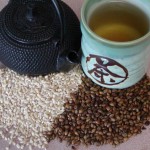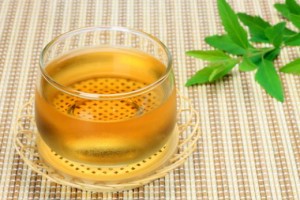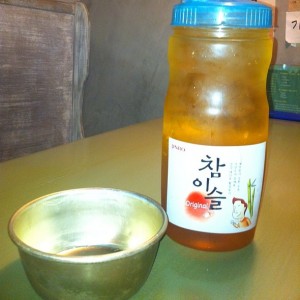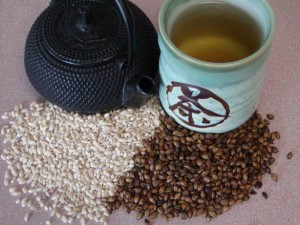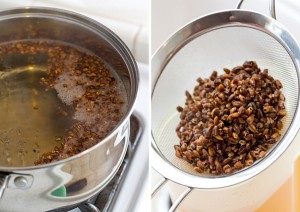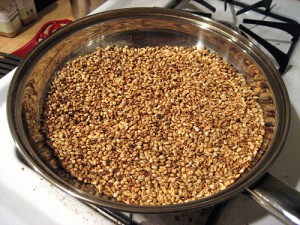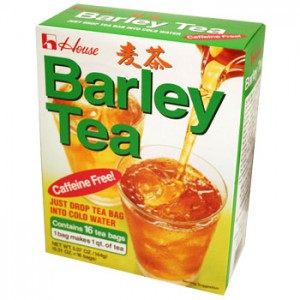Barley Tea
Barley tea, (called boricha in Korean, mugicha in Japanese, and maicha or damaicha in Chinese), is an herbal beverage made from the roasted grains of barley that is commercially available in powdered or crystalline form. Apart from its popularity in Chinese, Japanese, and Korean cuisine, it has been traditionally used as a soft drink in the UK and a caffeine-free substitute for coffee in the US.
History and origin
The earliest use of barley dates back to the Neolithic period when it was used to produce alcoholic beverages. Later on, it was also utilized as currency. In ancient Egypt, barley was taken as a staple cereal for its many health benefits and was commonly used to produce beer and bread. Historical accounts suggest that the gladiators were known as “hordearii” since they were “barley-eaters”. In Japan, mugicha has been traditionally consumed since the Heian Period (794-1192 AD).
Barley tea benefits
Good for heart
Scientific studies have shown that its intake decreases both the total cholesterol and low-density lipoprotein (LDL) levels in the body. Its consumption not just reduces triglyceride levels in the blood but also increases high-density lipoprotein or good cholesterol by a fair amount. Regularly drinking it helps to keep blood pressure under control, making it beneficial for those with high cholesterol.
Therefore, by keeping high blood pressure, cholesterol, and saturated fat down, barley tea helps reduce the chances of congenital and coronary heart diseases, heart failures, and heart attacks.
Promotes weight loss
The infusion is low in carbohydrate, fat, and calories, and thus its consumption keeps you from gaining weight. It curbs hunger and prevents you from overeating, aiding in weight management.
Inflammatory bowel diseases
Preliminary results from clinical studies indicate that the anti-inflammatory property of barley tea assists in reducing the symptoms of ulcerative colitis and gastroesophageal reflux disease (GERD) including abdominal pain, diarrhea, bloating, heartburn, constipation, and indigestion.
Helps relieve uti
Being a natural diuretic with antiseptic properties, it promotes urine production and flushes out harmful bacteria from the urinary tract and the kidneys. Its use not only reduces the symptoms of bladder and urinary tract infections but also detoxifies the body. Regularly having it might also lower the risks of kidney stone formation.
Anti-cancer activities
Some scientific evidence shows that barley, being a good source of dietary fiber and phenolic compounds with antioxidant property, is effective in reducing the chances of developing stomach and colorectal cancer. It also has selenium playing an important role as a constituent of glutathione peroxidase, an antioxidant enzyme utilized in the liver for removing harmful substances as well as preventing cellular damage.
Beneficial for bronchitis
It consists of a chemical compound called hordenine, which helps in easing the symptoms of bronchial infections including shortness of breath, coughing, headache, and sleeping difficulty.
Lessens the severity of gout attacks
Its high mineral content including potassium, magnesium, and calcium helps reduce swelling in joints, provides relief from pain, and minimizes the length of an acute gout attack.
Other uses
- The roasted grains of barley used in preparing the tea could be made into a poultice. It has nutrients like vitamin B complex and zinc that is good for acne-prone skin.
- It is rich in azelaic acid, and so its topical application aids in reducing age spots and fighting off hyperpigmentation.
How to make barley tea
- Take around 1/4 cups (2 ounces) of roasted barley into a teapot
- Add 3 cups of water into it
- Heat it to a boil
- Cover the teapot after reducing the heat
- Steep for about 6 minutes
- Strain it into teacups
- Add honey and some lemon juice to enhance its taste (optional)
It can be served either hot or cold with ice cubes. You can also refrigerate the drink to enjoy a cup of chilled barley tea. Milk is sometimes added to prepare a thicker beverage.
Safety and precaution
Side effects
In general, consumption of barley tea is considered safe. However, those sensitive to gluten as well as to cereal grains should avoid its use. People with diabetes should consult their doctor before having this drink since it might interact with anti-diabetic medications.
During pregnancy
It is safe for expecting women if taken in limited amounts, but those who are breastfeeding should refrain from using it.
Where to buy
Barley tea is available both in tea bags and in the loose form. Apart from ordering it online, you can also purchase it from the local groceries as well as herbal tea stores.
Article was last reviewed on 12th January 2023
Related Articles
Leave a Reply
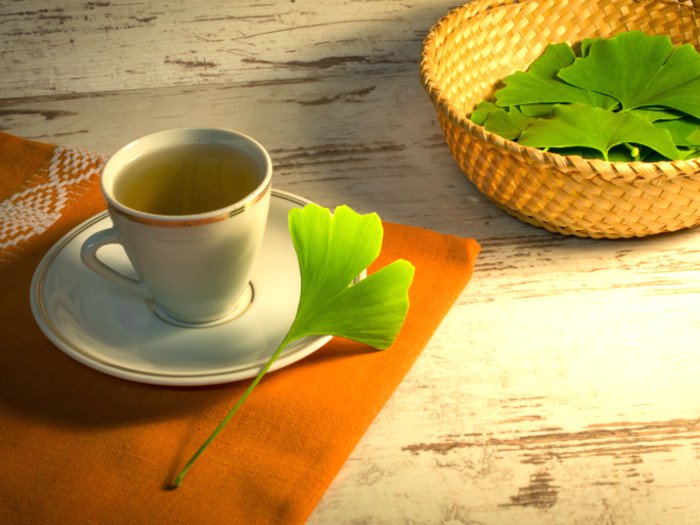
Ginkgo Biloba Tea
The Ginkgo Biloba tea is an herbal infusion obtained from the extract of the dried leaves
Read more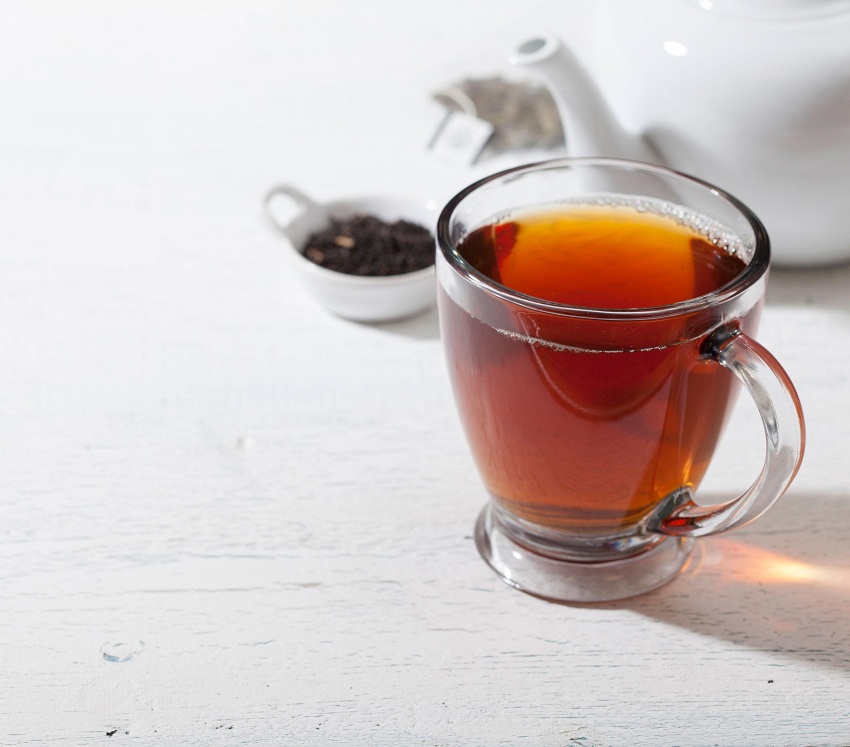
Black Tea
Black tea, belonging to the same group as the green, white and oolong teas is the most oxi
Read more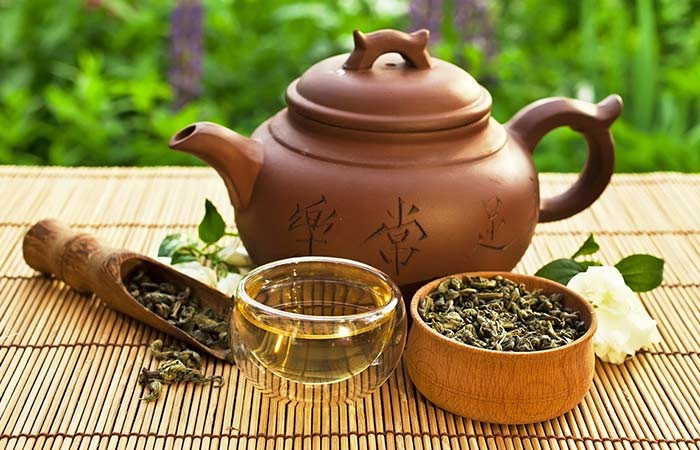
Oolong Tea
What is oolong tea Oolong, a traditional beverage of China, is prepared from the buds, st
Read more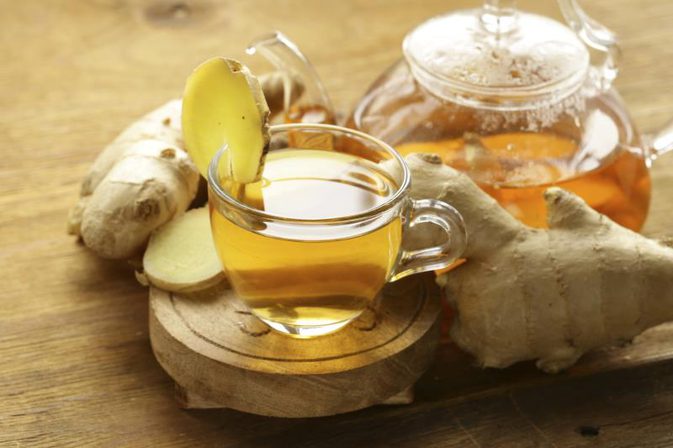
Ginger Tea
Ginger tea, prepared from the roots of ginger, is a popular herbal beverage of Asia. Becau
Read more
